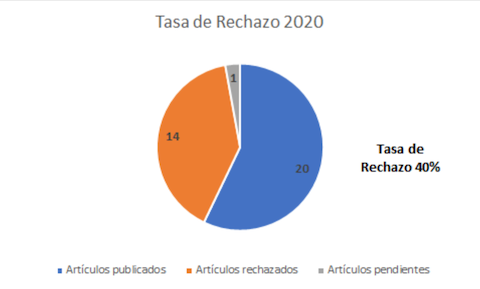Geospatial Collective Intelligence Approach in the appreciation phase of military planning
DOI:
https://doi.org/10.18667/cienciaypoderaereo.772Keywords:
Collective Intelligence, Military planning, Spatial Delphi Method, Spatial Decision Support SystemsAbstract
Military planning is an important process that allows to determine the best tactic and the most efficient mean to use military power, allowing command staff to make accurate and prompt decisions. For this purpose, it is essential to have a deep knowledge of military science and operational factors such as geographic space, force, and time, which results in greater probabilities of success in the execution of military operations. This research article intends to propose a new approach in the appreciation phase of military planning based on a research project called Collective Intelligence Geospatial Planning Model, which works through an automation of the Real Time Spatial Delphi method from a web-based tool called Geospatial System of Collective Intelligence (SIGIC, acronyms in Spanish). Such automation obtains a geo-consensus that allows us to conclude if it would be relevant or adequate to provide or give support to the commander in complex geographical scenarios. Current and prospective geospatial patterns can be established through geo-consensus, which is mainly focused on the planning, organization, and use of territorial resources.
Downloads
References
Castillo Rosas, J. D., Jiménez Vélez, Á. F., Díez Rodríguez, J. J., Monguet Fierro, J. M. & Núñez Andrés, M. A. (2015). Geospatial System of Collective Intelligence: A technological application for the interdisciplinary study of the geographical space complexity. Collective Intelligence Conference, Michigan, EEUU https://sites.lsa.umich.edu/collectiveintelligence/wp-content/uploads/sites/176/2015/06/Rosas-CI-2015-Abstract.pdf
Di Zio, S. & Pacinelli, A. (2011). Opinion convergence in location: A spatial version of the Delphi method. Technological Forecasting and Social Change, 78(9), 1565-1578. https://doi.org/10.1016/j.techfore.2010.09.010
Emsellem, K., Liziard, S. & Scarella, F. (2012). La géoprospective: l’émergence d’un nouveau champ de recherche. Espace géographique, 41(2), 154-168. https://doi.org/10.3917/eg.412.0154
Gnatzy, T., Warth, J., von der Gracht, H. & Darkow, I. L. (2011). Validating an innovative real-time Delphi approach - A methodological comparison between real-time and conventional Delphi studies. Technological Forecasting and Social Change, 78(9), 1681-1694. https://doi.org/10.1016/j.techfore.2011.04.006
Goodchild, M. F., Yuan, M. & Cova, T. J. (2007). Towards a general theory of geographic representation in GIS. International Journal of Geographical Information Science, 21(3), 239-260. https://doi.org/10.1080/13658810600965271
Hsieh, C. H., Tzeng, F. M., Wu, C. G., Kao, J. S. & Lai, Y. Y. (2011). The comparison of online Delphi and real-time Delphi. Proceedings of PICMET ‘11: Technology Management in the Energy Smart World (PICMET), (pp. 1-3). https://ieeexplore.ieee.org/abstract/document/6017652
Houet, T. & Gourmelon, F. (2014). La géoprospective – Apport de la dimension spatiale aux démarches prospectives. Cybergeo: European Journal of Geography. [En ligne], Systèmes, Modélisation, Géostatistiques, document 667, mis en ligne le 08 février 2014, consulté le 29 mai 2023. URL : http://journals.openedition.org/cybergeo/26194 ; DOI : https://doi.org/10.4000/cybergeo.26194
Monguet, J., Ferruzca, M., Gutiérrez, A., Alatriste, Y., Martínez, C., Cordoba, C., Fernández, J., Sanguino, T. & Aguilà, J. (2010). Vector Consensus: Decision Making for Collaborative Innovation Communities [conference]. Enterprise Information Systems: International Conference, CENTERIS 2010, Viana do Castelo, Portugal. https://doi.org/10.1007/978-3-642-16419-4_22
Lévy, P. (1997). Education and training: New technologies and collective intelligence. Prospects, 27(2), 248-263. https://doi.org/10.1007/BF02737169
Painho, M., Vasilakos, A., Bacao, F. & Pedrycz, W. (2005). Exploring spatial data through computational intelligence: a joint perspective. Soft Computing, 9, 326-331. https://doi.org/10.1007/s00500-004-0411-6
Santos, M. (2006). The nature of space: technique and time, reason and emotion. Edusp, Sao Paulo, 4. https://ebin.pub/the-nature-of-space-1478013486-9781478013488.html.
Voiron-Canicio, C. (2012). L’anticipation du changement en prospective et des changements spatiaux en géoprospective. Espace géographique, 41(2), 99-110. https://doi.org/10.3917/eg.412.0099
Published
Issue
Section
License
Copyright (c) 2023 Escuela de Postgrados de la Fuerza Aérea Colombiana

This work is licensed under a Creative Commons Attribution 4.0 International License.
Assignment of Copyrights
Authors assign Ciencia y Poder Aéreo journal the exclusive rights (reproduction, distribution, public communication, and transformation) to exploit and commercialize their work, in whole or in part, in all the formats and modalities of present or future exploitation, in all languages, throughout the life of the work and throughout the world.
All contents published in Ciencia y Poder Aéreo journal are licensed under a Creative Commons Attribution 4.0 International License, whose complete information is available at http://creativecommons.org/licenses/by/4.0/
Under the terms of this license, users are free to download, print, extract, archive, distribute and publicly communicate the content of articles, provided that proper credit is granted to authors and Ciencia y Poder Aéreo, scientific journal of the Graduate School of the Colombian Air Force. Except when otherwise indicated, this site and its contents are licensed under a Creative Commons Attribution 4.0 International License.
For other uses not considered under this license it is required to contact the Director or the Editor of the journal at the e-mail address cienciaypoderaereo1@gmail.com.
The Graduate School of the Colombian Air Force and this publication are not responsible for the concepts expressed in the articles, including the metadata or the affiliation stated by authors. This is the full responsibility of the authors.






















